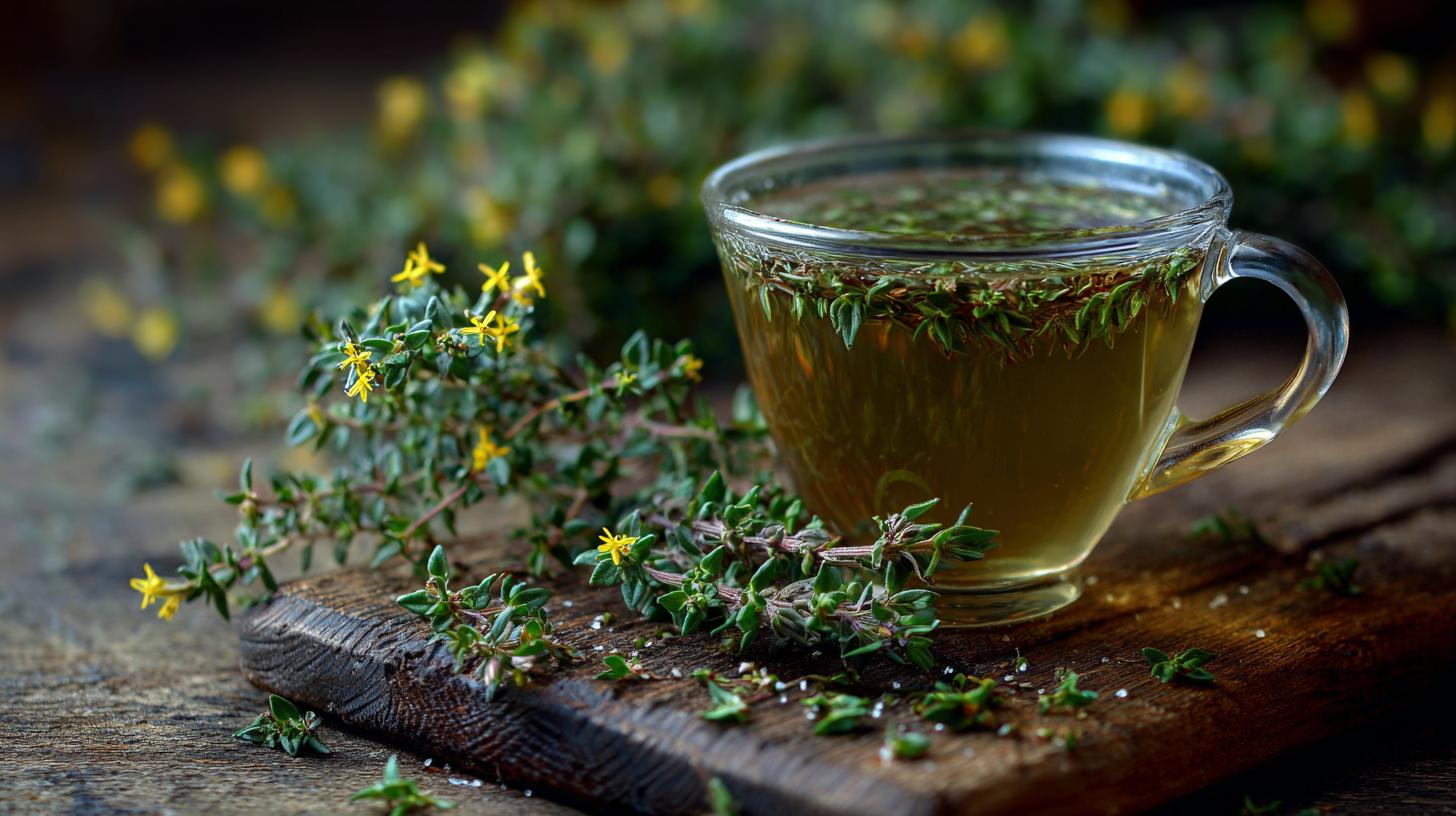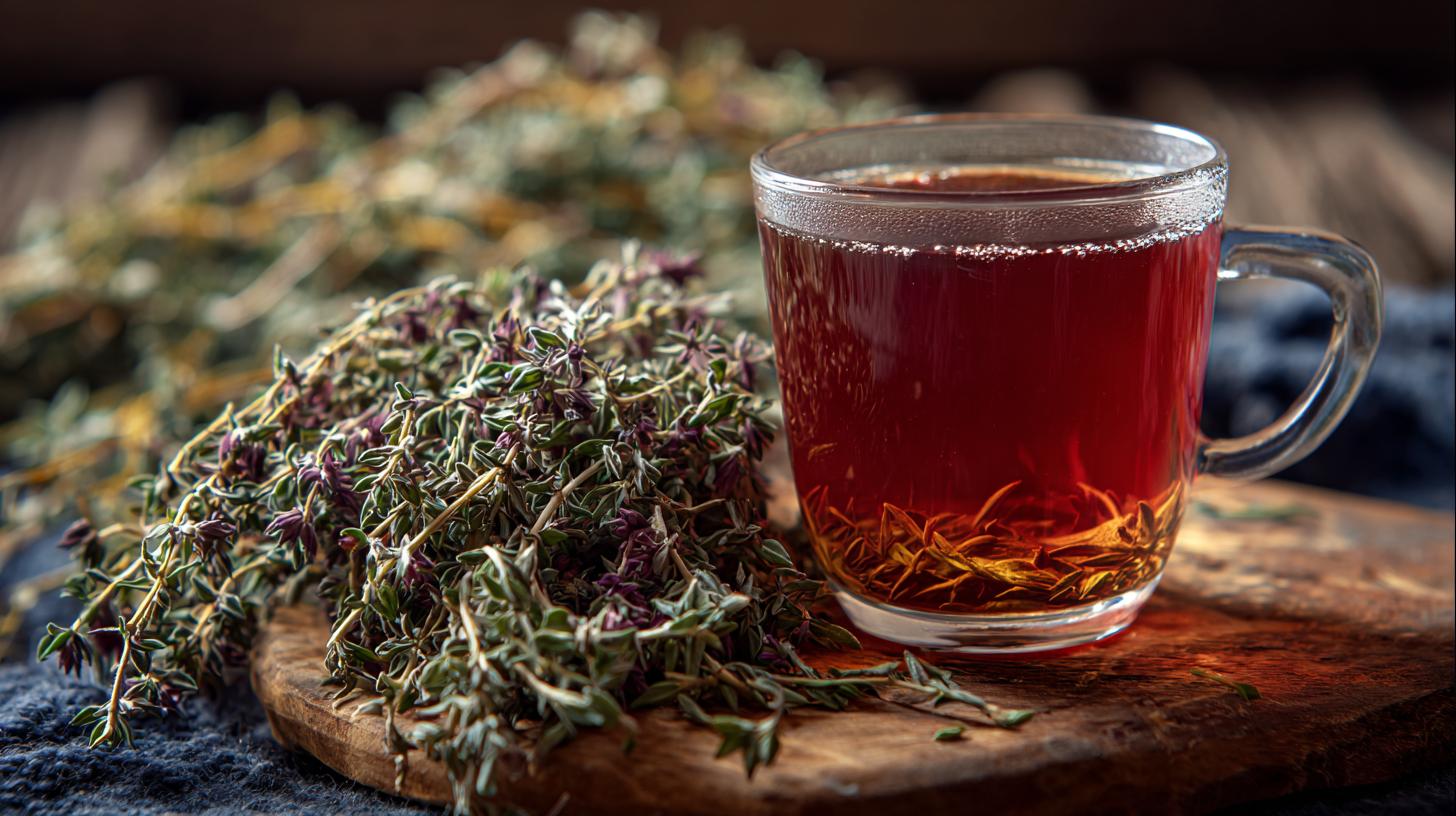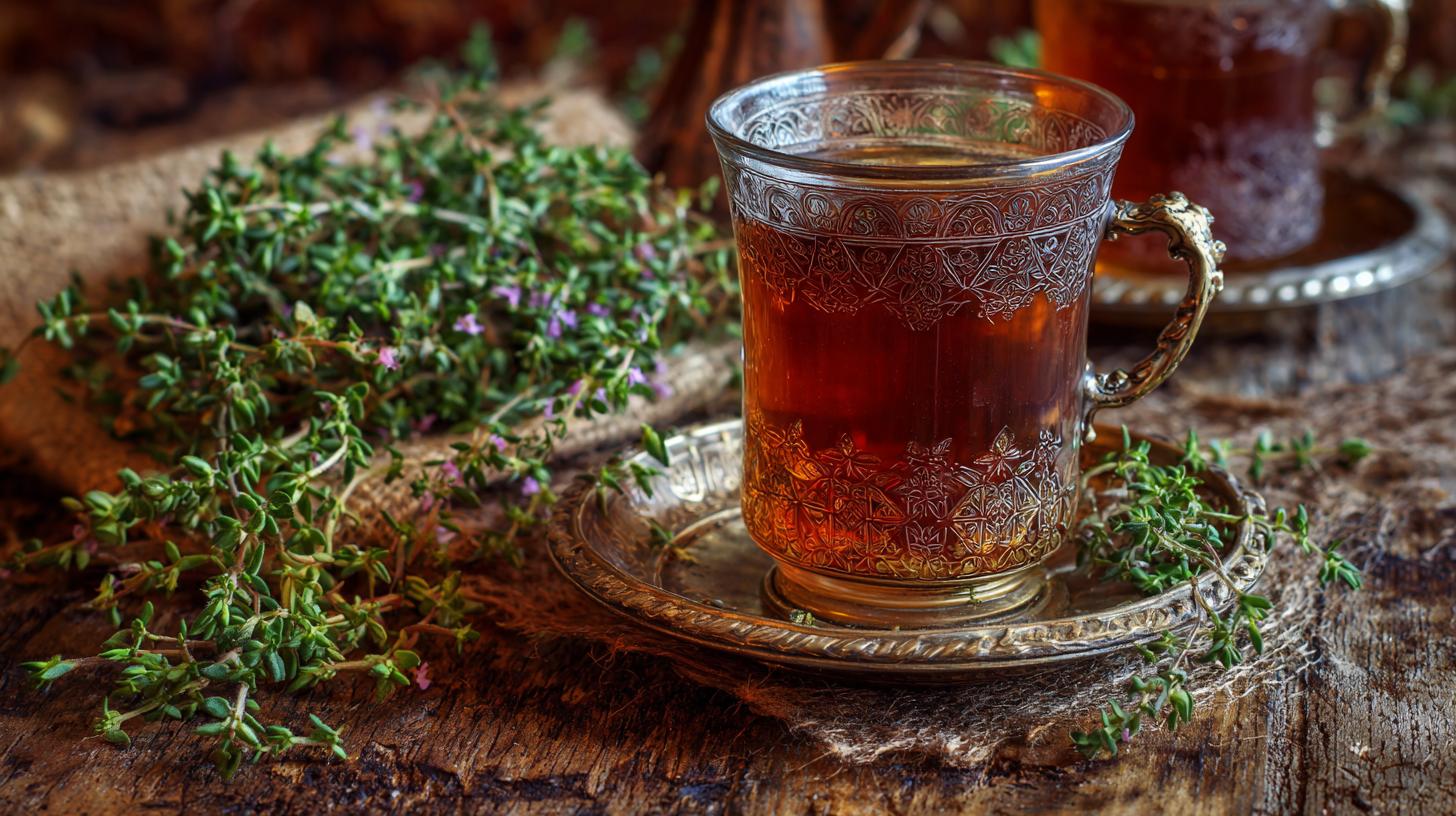The rich, mountainous region of the Caucasus is home to a variety of herbs and plants treasured for their unique flavors and health properties. Among these is wild thyme, a fragrant herb that thrives in the diverse climate of the area. Wild thyme tea from the Caucasus offers a distinct blend of taste and health benefits, drawing on centuries-old traditions and natural cultivation methods. In this article, we’ll explore everything you need to know about this aromatic herbal tea, from its flavor profile to its numerous advantages for wellbeing.
The Origin and Growing Conditions of Wild Thyme in the Caucasus

The Caucasus, a region stretching between the Black Sea and the Caspian Sea, includes countries like Georgia, Armenia, Azerbaijan, and parts of southern Russia. This area is known for its dramatic landscapes and varied ecosystems, which create ideal conditions for the growth of wild thyme. The plant thrives in rocky, well-drained soils and enjoys the mild summers and cold winters typical of the region.
Wild thyme, also known by its scientific name Thymus serpyllum or creeping thyme, grows abundantly in the highlands and valleys of the Caucasus. The altitude and climatic conditions impart specific qualities to the herb, influencing its essential oil composition and, in turn, its flavor and medicinal properties. Because it is harvested wild rather than cultivated, the tea reflects the untouched nature of its environment.
Wild Thyme Harvesting Practices
Local communities in the Caucasus have traditionally harvested wild thyme by hand during the flowering season, usually late spring through early summer. This careful manual gathering helps ensure the upper parts of the plant, which contain the highest concentration of beneficial oils and compounds, are collected without harming the root systems. After harvesting, the thyme is dried naturally in the shade, preserving its aroma and potency for tea preparation.
The Taste Profile of Wild Thyme Tea from the Caucasus

One of the most intriguing aspects of wild thyme tea from the Caucasus is its distinctive taste. Unlike commercial thyme varieties used in cooking, this wild thyme presents a more complex and nuanced flavor profile.
When brewed as tea, wild thyme offers a slightly sweet, earthy aroma with subtle floral undertones. The taste is aromatic and herbaceous, marked by gentle hints of mint and citrus, balanced by a mild bitterness and a lingering warmth on the palate. This makes wild thyme tea a comforting and refreshing beverage, enjoyed both hot and cold.
Here is a breakdown of the primary taste notes encountered when sipping wild thyme tea from the Caucasus:
| Flavor Note | Description | Intensity |
|---|---|---|
| Herbaceous | Dominant thyme aroma and earthiness | High |
| Floral | Light sweet floral hints reminiscent of wildflowers | Medium |
| Citrus | Subtle fresh zest notes similar to lemon balm | Low to Medium |
| Minty | Faint cooling sensation typical of mint species | Low |
| Bitter | A subtle underlying mild bitterness | Low to Medium |
This complexity makes the tea versatile: it pairs well with honey or lemon, and can be blended with other local herbs for a customized flavor experience.
Health Benefits of Wild Thyme Tea from the Caucasus
Beyond its taste, wild thyme tea from the Caucasus has long been valued for its medicinal properties. Folk medicine in the region often incorporates wild thyme to treat a variety of ailments, owing to its rich essential oils, antioxidants, and other phytochemicals.
Key Nutritional and Medicinal Compounds in Wild Thyme
Wild thyme contains several active compounds that contribute to its health benefits, including thymol, carvacrol, flavonoids, rosmarinic acid, and tannins. These compounds work synergistically to support various bodily functions and potentially offer therapeutic effects.
- Thymol and Carvacrol: These are antiseptic and antimicrobial agents that help fight infections.
- Flavonoids: Antioxidants combating oxidative stress and inflammation.
- Rosmarinic Acid: Known for its anti-inflammatory and antiviral properties.
- Tannins: Aid in digestion and have astringent qualities.
Potential Health Benefits
Here’s how wild thyme tea supports wellbeing according to traditional use and contemporary research:
- Respiratory Health: The tea can soothe coughs, ease bronchitis, and support overall respiratory function. Its expectorant properties help clear mucus from the lungs.
- Digestive Aid: Wild thyme tea may alleviate indigestion, gas, and bloating by stimulating digestive enzymes and reducing intestinal spasms.
- Immune Boost: The antimicrobial components help the body defend against common infections and boost immune response.
- Anti-inflammatory Effects: The antioxidants present in the tea can help reduce inflammation, which is linked to many chronic diseases.
- Relaxation and Stress Relief: Drinking warm wild thyme tea has a calming effect that can reduce anxiety and promote better sleep.
How to Prepare Wild Thyme Tea for Maximum Benefit
To enjoy both the taste and benefits of wild thyme tea from the Caucasus, proper preparation is important. Here’s a straightforward method to brew an authentic cup:
- Use about 1 teaspoon of dried wild thyme per cup of boiling water.
- Pour boiling water over the thyme and cover the cup to trap essential oils.
- Let it steep for 7 to 10 minutes. Longer steeping increases bitterness but also extracts more medicinal compounds.
- Strain and drink while warm. Optionally add honey or lemon to enhance flavor.
Regular consumption, one to two cups daily, can be integrated into your routine for ongoing health support. However, as with any herbal remedy, consulting a healthcare provider is advised especially for pregnant women or those with medical conditions.
Wild Thyme Tea Compared to Other Herbal Teas from the Caucasus

The Caucasus region is rich in herbal teas, each with unique flavors and uses. Wild thyme tea stands out due to its combination of robust flavor and health-promoting properties.
| Herbal Tea | Main Flavor Profile | Primary Benefits | Wild Thyme Tea Comparison |
|---|---|---|---|
| Rosehip Tea | Fruity, tart | Rich in Vitamin C, antioxidant | Wild thyme offers more herbal and anti-inflammatory properties |
| Chamomile Tea | Mild, floral, sweet | Relaxation, sleep aid | Wild thyme has stronger antimicrobial benefits |
| Linden Flower Tea | Sweet, slightly citrusy | Diaphoretic, calming | Wild thyme delivers a more pronounced herbaceous flavor |
Each of these teas complements wild thyme, and blending them can yield pleasant beverages that marry taste and health effects.
Incorporating Wild Thyme Tea from the Caucasus into Daily Life
As modern lifestyles grow more fast-paced, natural herbal remedies like wild thyme tea from the Caucasus offer a simple way to reconnect with traditional knowledge and promote health naturally. Preparing a cup of this tea can be a mindful moment during the day, helping you pause, relax, and nourish your body.
Wild thyme tea pairs well with a variety of meals and can be enjoyed as a calming drink after a busy day or in social settings. Furthermore, due to its digestive and respiratory benefits, it can become part of a holistic approach to health maintenance, particularly in colder seasons or during periods of stress.
To incorporate it effectively, consider these tips:
- Start with small, regular doses to understand how your body responds.
- Combine wild thyme tea with light physical activity to boost circulation.
- Use it as a base for herbal blends by adding other Caucasus herbs like mint or sage.
- Store dried wild thyme in a cool, dry place to preserve its qualities.
As you explore the sensory experience of wild thyme tea from the Caucasus, you gain more than just a drink—you connect with a living tradition that has nurtured communities for generations.